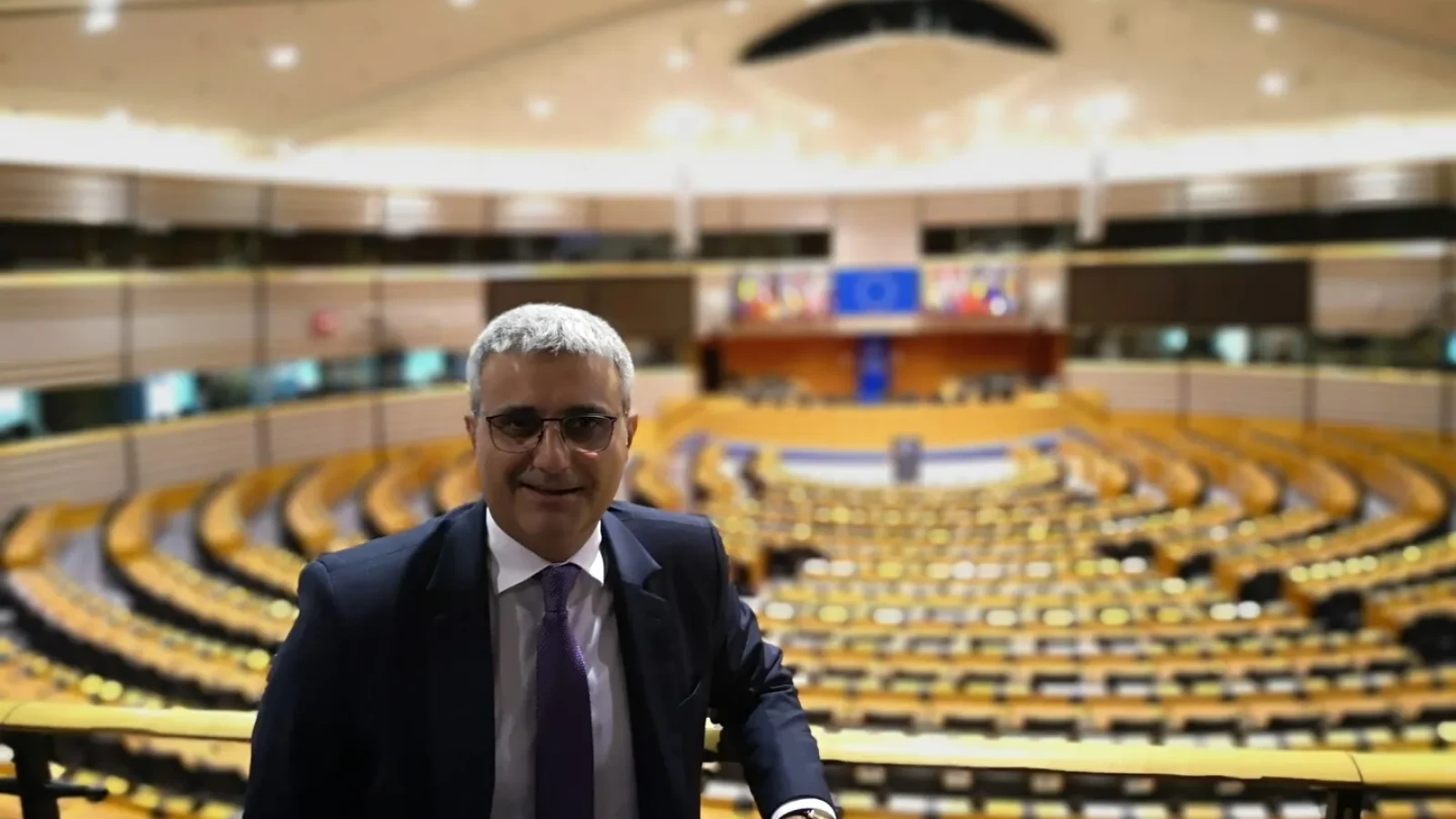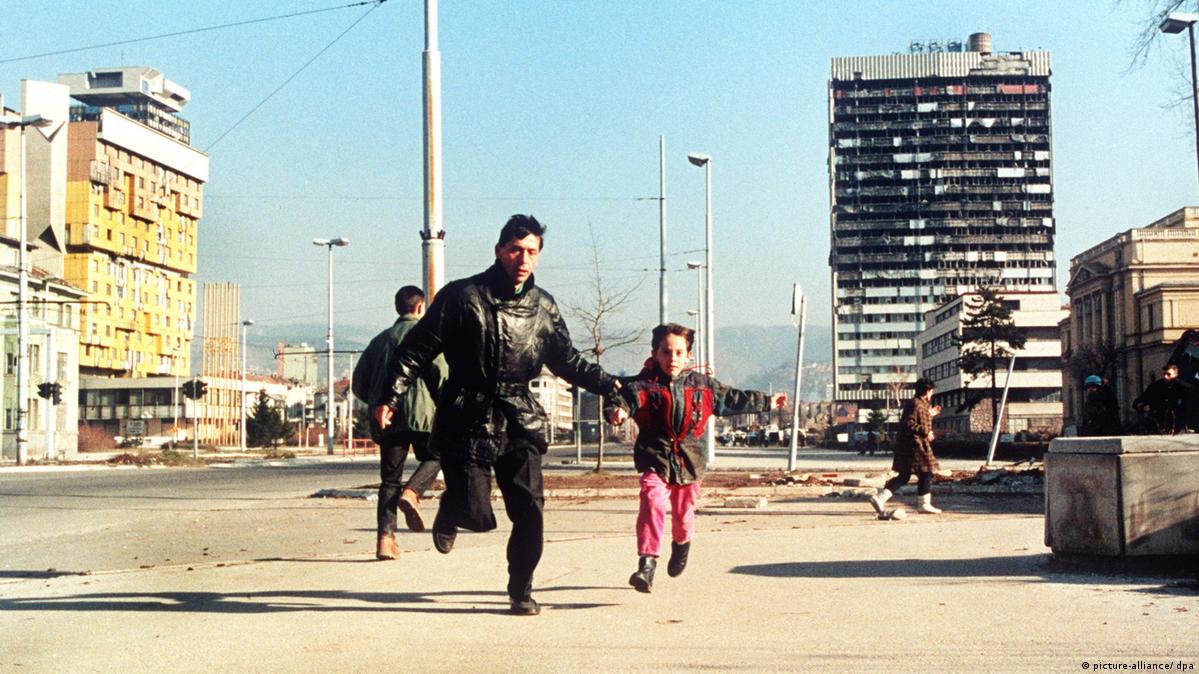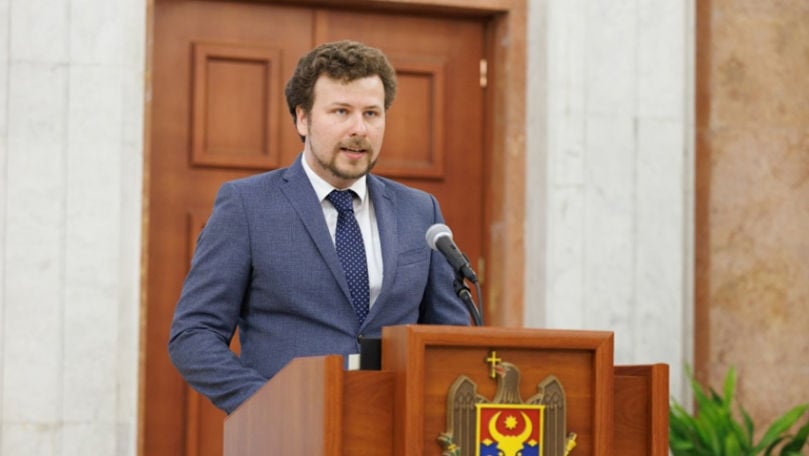The European Commission published on Tuesday, October 22, the CVM Report on Romania for 2019. The document reveals a gloomy landscape of the Romanian justice system as the European experts find regressions in almost all areas under review. However, the document also contains factual errors, subjective assessments and grave omissions which raises serious and legitimate doubts about the objectivity of the report.
Link to the 2019 CVM technical report in Romania: https://ec.europa.eu/info/sites/info/files/technical-report-romania-2019-swd-2019-393_en.pdf
"The variety of opinions expressed by the different Romanian interlocutors is an important element for an open and transparent debate. The Commission bases its assessment on all sources available, also taking into account divergent views", the preamble to the MCV Report states.
However, on closer inspection, the whole document seems to be a compilation of press releases from several professional associations of magistrates close to the opposition parties (National Liberal Party, Save Romania Union Party), the so-called “activist magistrates”.
Questions like who participated in the preparation of the CVM Report on Romania and why the document has a biased approach will, most likely, never find a full answer before the public opinion. We will never know why a country like Bulgaria, without any anti-corruption agency and with much greater problems related to the independence of justice, is more appreciated than Romania in Brussels.
But, despite this, a debate on the factual errors in the report is certainly needed.
STIRIPESURSE.RO has made a non-exhaustive list of 20 factual errors and subjective assessments contained in the CVM Report on Romania, which we present below, in the same order as they appear in the technical report.
The list of factual errors and subjective assessments in the CVM report on Romania:
1. The “Section for investigating infractions within the justice system” (SIIJ) is referred to in the report as the “Special Section for investigating crimes committed by magistrates”.
Firstly, the label "special section" was used by the critics of SIIJ in order to be able to shorten it as “SS” and associate this investigative unit to the Nazi Schutzstaffel for propaganda reasons.
Secondly, during the debate in the Parliament the reference in the name of this unit to “crimes committed by magistrates” has been replaced with “infractions within the justice system”, so the magistrates could not be labelled as a criminal group.
In conclusion, not only the name of this investigative unit is inaccurately mentioned in the CVM report, but the use of “special section” label proves the absolute bias of this report.
2. Technical report, page 6: “(2) … in particular the prosecution section had no role in the appointments of prosecutors of the special section for investigating crimes committed by magistrates at the creation of the section;”.
This statement is false.
For a fact, the Prosecutors Section of the Superior Council of Magistracy (SCM) refused to take a role in the selection process of the SIIJ prosecutors because it refused to appoint a representative in the selection panel of SIIJ prosecutors.
As far as the appointment of the selected prosecutors in SIIJ is concerned, the members of the Prosecutors Section had the right to vote in the Plenary of the Superior Council of Magistracy on the appointment of SIIJ prosecutors and they exercised their right.
3. Page 7, paragraph 4: “The first concern expressed has been that the creation of the special section specialising in investigating allegations of crimes (such as corruption or abuse in office) committed by magistrates would affect their public standing and reputation, as it singles magistrates out as a specific group deserving special treatment for crimes allegedly committed, putting them under a general suspicion”, as well as footnote 27: “The specialised prosecution offices in Romania are competent for specific crimes committed by anybody and not just by a specific professional group.”
The concern is baseless, and the footnote is false.
For a fact, the Romanian law instituted military prosecutorial offices and tribunals, tasked with investigating exactly this specific professional group.
Furthermore, the competence of National Anticorruption Directorate (DNA) is specific to also certain professional groups (see, for example, art. 13 paragraph (1), letter b) of the Government Emergency Ordinance no. 43/2002).
4. Page 7, paragraph 4: “These claims of systematic abuses by the DNA [against the judges and other prosecutors] have been strongly disputed by the DNA and by the Public Ministry”.
The CVM report is omitting to refer to the Report of the Judicial Inspection on the criminal cases opened by the DNA against judges and prosecutors, which documents numerous abusive practices employed by DNA prosecutors from all over the country against the magistrates. The report was approved by the Superior Council of Magistracy Plenary on October 15, 2019.
5. Page 7, footnote 28: "In August 2018, numbers entered the public domain without verification, citing thousands of investigations initiated ex officio against magistrates by the DNA. Corroboration came from the Judicial Inspection, but this appeared to breach the confidentiality of an inspection being carried out in the DNA. The publication of figures from the DNA itself and the Public Ministry did not result in a rectification, even from official sources.”
The information in the CVM Report is false. The Judicial Inspection had not provided any data regarding the number of files opened ex officio against any magistrates, before completing the verification and submitting the report to the Superior Council of Magistracy.
6. Page 7, footnote 29: "As mentioned in the November 2018 CVM report, there were 2396 cases involving magistrates registered between by 2014 and 2018.”
The number of 2396 cases involving magistrates mentioned in the CVM report on Romania is false.
For a fact, according to the Judicial Inspection Report, approved by the Superior Council of Magistracy Plenary on October 15 2019, between 2014 and 2018 the DNA opened 2901 criminal cases against the magistrates, with 505 criminal cases more than the number mentioned in the CVM Report.
7. Page 8, paragraph 2: "Government Emergency Ordinance 90/2018 weakened a number of guarantees, including the professional, management and ethical requirements for the candidates, and took away the necessity that high-ranking prosecutors participated in the selection panel and in the final appointment decision. The Ordinance made a one-off modification of the law in such a way as to ensure full control of the appointment process to a small panel consisting only of a few judges of the SCM.” And the reference to footnote 31: “Throughout 2018-2019 the legislator and the Government oscillated between two models of appointment of top prosecutors: one involving the Plenary of the SCM and another the Prosecutors’ Section. It is unclear why, for the transitional scheme of appointment of top prosecutors to the Section, the Government entrusted the function to the member of the Judges’ Section.”
As mentioned previously, the statement that the SCM Prosecutors Section was eliminated from the selection process is false. For a fact, the Prosecutors Section refused to appoint a representative in the selection panel.
Furthermore, these were transitory rules, in force until the selection process mentioned by law was finalized. The urgency for that Emergency Ordinance was justified by the fact that the legal provisions establishing SIIJ, which granted this unit exclusive competence/jurisdiction to investigate criminal cases involving magistrates, entered into force, with the risk of SIIJ being in the impossibility to function.
8. Page 8, paragraph 2: “The result was the appointment of a management team in a way which could not command the confidence of the public and the respect from within the judicial system, and which inevitably raised concerns about vulnerability to political influence”.
The above assertions in the CVM Report are deeply subjective, being mere speculations unsupported by arguments and facts.
Despite the fact that the European Commission and the Venice Commission have repeatedly recommended the appointment of high-ranking prosecutors by the SCM, without the involvement of the political factor, the CVM Report criticizes the procedure closest to those recommendations.
To raise concerns about “vulnerability to political influence” in this selection process is simply absurd, since no politician is involved in the selection process.
For a fact, the selection of SIIJ prosecutors is done by a panel composed of elected judges and prosecutors who are members of SCM, and the appointment of SIIJ prosecutors is done by the SCM Plenary.
9. Page 9, paragraph 1: "In May 2019 the Section reopened a corruption investigation concerning a judge of the SCM which the DNA had closed in August 2018. The judge in question had regularly spoken publicly against the amendments to the justice law, including the special section."
The reference here is to judge Bogdan Mateescu and the first phrase is inaccurate.
For a fact, the criminal case against judge Bogdan Mateescu was reopened by a judge from the High Court of Cassation and Justice because the DNA prosecutor closed the file illegally.
In respect of the second phrase, the fact that Bogdan Mateescu was a critic of SIIJ is irrelevant in the context, the CVM Report inducing a causal relationship impossible to prove. If such statement of the Commission could be even taken in consideration, then the allegations of many politicians who claimed that DNA opened criminal cases against them because they criticised DNA have also to be taken into consideration.
10. Page 9, paragraph 2: “Such examples have led observers both within Romania [41] and outside to conclude that the concerns expressed at the establishment of the Section have been proved justified, [42] and to therefore call for the Special Section to be disbanded.” Referring to footnote 41: "Magistrates associations (Forumul judecatorilor, AMASP, ˝Initiativa pentru justitie), civil society, Opposition parties.", and footnote 42: “A key example concerned a criminal case against the former Chief Prosecutor of the DNA who is also a candidate to be European Public Prosecutor. The timing of the opening of the criminal case and the calendar of summons seemed specifically designed to frustrate this candidacy, and a decision by the High Court of Cassation and Justice on the preventative measures applied qualified them as unlawful. Another example, at the same period, concerns a case opened against the former Prosecutor General for forming an organised crime group in relation to the drafting of the CVM reports."
First of all, invoking the positions of some associations of magistrates but ignoring other associations creates an obvious imbalance, while the critical positions of some political parties cannot be a criteria for evaluating a justice system.
In the case of Laura Codruta Kovesi, the CVM Report notes a “coincidence” in the opening of the criminal file, although, over the years, such coincidences in the activity of the DNA have never been mentioned in the reports (e. g. Victor Ponta was charged by the DNA on the day of reading the censorship motion in Parliament; Ludovic Orban was charged by the DNA just before the local elections).
The argument regarding the former General Prosecutor is simply false. The criminal file against the General Prosecutor was registered by DIICOT after a complaint from a person. According to the law, if a criminal complaint matches the formal criteria it has to be registered by the prosecutor’s office before it can be investigated. Later on, the complaint was dismissed. This is a just an example where the CVM report is raising “concerns” on things done following the law.
11. Page 10, paragraph 3: “A further issue were successive cases of ongoing disciplinary investigation documents appearing in the media – with a similar correlation to those critical of the amendments to the justice laws and the special section to investigate crimes committed by magistrates”.
This statement in the CVM Report is false.
There was no information leaked in the media during ongoing disciplinary investigations. The information "on the sources" appeared, in all the cases, only after the disciplinary actions were exercised and the documents were sent to SCM, other institutions and the magistrate who was disciplinary investigated.
The above statement is supported even by footnote 49, which lists some links to news articles about disciplinary investigations, which contains only the position of the magistrates under investigation.
On the same topic, footnote 50 states: “A judge’s association made an official request to the Judicial Inspection regarding the leaks. The Judicial inspection denied any wrongdoing.”
The association referred to here was “Forumul Judecatorilor” (Forum of Romanian Judges). In the response, the Judicial Inspection not only denied, but provided a detailed answer proving that the articles were written after they finalized the investigations and the documents were sent to other institutions or to the petitioner. Furthermore, the response from the Judicial Inspection was published by the Judges Forum on their website and it is available here: http://www.forumuljudecatorilor.ro/index.php/archives/3624
This is a clear example on how the CVM report is misleading.
12. Page 11, paragraph 1: "The procedure managed by the SCM resulted in the appointment of the same chief inspector, despite the prevailing controversy. On 17 July, the SCM decision to validate the selected candidate was challenged in court.”
The CVM report not only criticizes the legal norm for appointing the chief inspector, but it also refers to subjective considerations, despite the fact that the case is before a court and has not been finalized yet. This could easily be interpreted as a form of pressure exerted on the court.
Nevertheless, the report omitted to specify that the chief inspector Lucian Netejoru was the only candidate, although nothing prevented others from entering the race.
13. Trying to justify the secret protocols between Romanian Information Service (SRI) and Public Ministry, the CVM on page 12, footnote 59 stated: "In a recent ruling by the Court of Appeal of Suceava, it was decided not to exclude evidence based on past interceptions. Judges considered here that the Constitutional Court itself stated that offer of technical support by the SRI is not equivalent to performing the act of criminal investigation. Curtea de Apel Suceava, Încheierea de cameră preliminară nr. 15 din 19 martie 2019”.
The Court of Appeal is referring to the Romanian Constitutional Court decision 26/2019, by which the 2009 secret protocol between SRI and Public Ministry was declared unconstitutional. It is unclear why the authors of the CVM Report have decided to choose a ruling disregarding the Constitutional Court decision, given that opposing court decisions are countless.
14. Page 12, paragraph 7: “The Superior Council of Magistracy also informed the Commission that the Judicial Inspection has prepared a report on the protocol between the SRI and the Prosecution services. The report has been transmitted to the Council for debate and endorsement, but has not yet been made public. [61]”, completed by footnote 61 which stated: “The report has however been leaked to the media.”
It is unclear who the European Commission is blaming for the leak.
For a fact, there is no legal provision that prohibits the publication of such a document after the phase of the investigations carried out by the Judicial Inspection is completed.
However, for the accuracy, the report was not published by the Judicial Inspection nor the SCM, but was leaked in the media after the document was sent to the courts and prosecutors' offices for observations.
15. Page 17, paragraph 5: "This situation is also reflected in the new justice laws, and exacerbated by the government emergency ordinances on the justice laws, which made it possible for decisions on key issues to be determined by only a few SCM members. Examples already mentioned are the appointments of the management of the special section to investigate magistrates and of the chief inspector."
The statement is inaccurate because, although the selecting panels are made of few judges and prosecutors, the appointment of the heads of the two structures is made by the Plenum of the SCM.
16. Page 17, last paragraph: "Between November 2018 and June 2019, the SCM has taken only two decisions to defend the independence of the judicial system and 19 decisions to defend the professional reputation, independence and impartiality of magistrates.80 Furthermore, analysis finds that the time taken to take decisions has increased in the last two years, thereby decreasing the impact of the decisions of the SCM."
The statements refer to footnote 81, which is pointing to a document elaborated by the "Forum of Romanian Judges" Association. The document has a deeply subjective character, the association having critical positions against the SCM leadership and having launched multiple lawsuits against the SCM.
Furthermore, the CVM report does not argue what would be the term of comparison against which it considers that the activity of the SCM in this area would have been insufficient.
17. Page 18, paragraph 1: "Where the SCM has cited a defence of the independence of the judiciary, it has sometimes raised issues of potential political partiality”. Reference to footnote 83: " For example statements condemning declarations (1) of the President of the European Parliament criticising the preventive measures taken by the special section to investigate magistrates preventing the EPPO candidate to attend the hearing at the European Parliament; (2) of the President of Romania rejecting the proposal for minister of justice made by the Prime Minister in August 2019."
The CVM report contradicts in this paragraph precisely the claims made in the previous paragraph of the same document, mentioned in #16 above.
If previously the CVM Report denounced the SCM's low involvement in the defence of the judicial system's independence from political actions, in this paragraph it is criticizing precisely the defence of the judicial system's independence in the face of political interventions.
The authors of the MCV Report suggest, by using these double standards, that only certain political interventions affecting the independence of the judiciary are not ok, while others are, which is absurd.
18. Page 21, last paragraph: "The public criticism of the DNA continued in 2019. Examples are the allegations of abuses in relation to cases of corruption involving magistrates, the collaboration with the Intelligence Services or general criticism on the cost of DNA.”
The CVM report does not mention that all three categories of examples offered objective reasons for public criticism.
The Judicial Inspection report on the criminal files opened by DNA against the magistrates, report approved by the SCM Plenary on October 15, proves and documents the DNA abusive practices. Furthermore, the collaboration of DNA with SRI was conducted on the basis of a secret protocol declared unconstitutional. Nevertheless, the issue of costs was also brought to the public's attention in a justified manner, given that some structures within the DNA worked on an extremely small number of criminal files in the last year (for example: Military Services, DNA Iasi, DNA Alba Iulia, DNA Timisoara).
19. On page 22, after mentioning the decision of the Constitutional Court regarding the panel of judges from the High Court of Cassation and Justice, according to which they have been operating illegally for many years, paragraph 3 reads: "the Judicial Inspection filed a disciplinary file against the President of the HCCJ and the SCM judges section asked for its revocation in relation to these constitutional conflicts. These disciplinary actions were later dismissed, but in July 2019, the President of the High Court announced she would not apply for a second term, explicitly citing the pressure imposed by these steps.”
Shockingly, the CVM report does not mention as a cause for concern the fact that the High Court violated the law in the way the panel of judges were formed, which - as stated by the Constitutional Court - was a very serious matter, but is limited to criticizing precisely the attempts to hold responsible those who have acted illegally for many years.
The deeply subjective and biased statement from above also contains a false assertion. The judges section of the SCM, as a body, has not taken any institutional steps to dismiss the president of the High Court of Cassation and Justice. There was a such request from only one SCM member.
20. Last by not least, besides the many – too many – false, inaccurate, baseless or subjective statements contained in the 2019 CVM Report on Romania, it is worth mentioning the total absence of any references in the report about the violation of judicial independence done by the President of Romania, who called publicly for the resignation of the DIICOT chief prosecutor. This omission is even more disturbing if it’s taken into account that the CVM report criticized the Minister of Justice for initiating the procedures prescribed by law to revoke the DNA chief prosecutor and the general prosecutor.
































Comentează